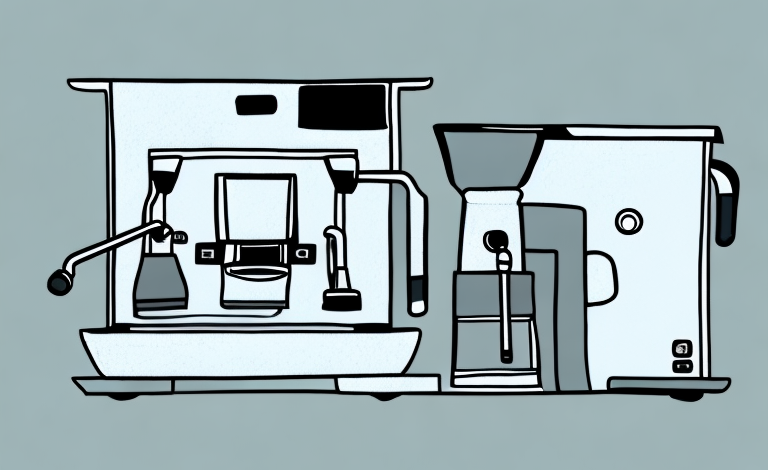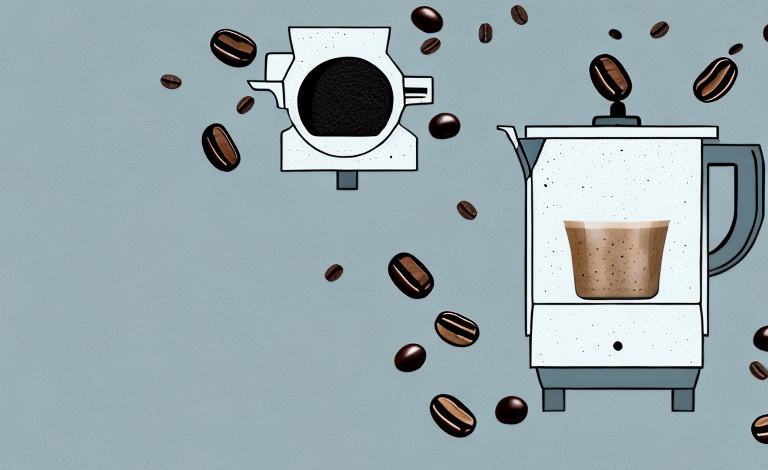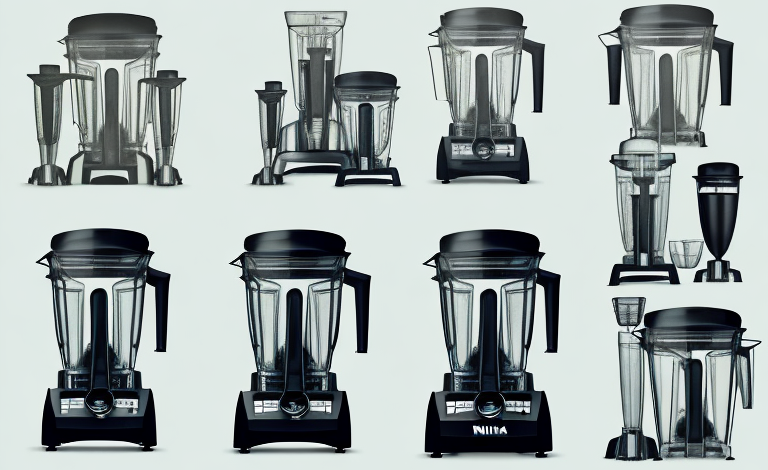Microwaves are a common household appliance that make our lives easier by allowing us to quickly and easily heat our food. However, like all appliances, microwaves can stop working suddenly, leaving us without a convenient way to cook and heat food. In this article, we’ll take a closer look at the various reasons that can cause a microwave to suddenly stop working and what can be done to prevent or fix these problems.
Common symptoms of a malfunctioning microwave
Before we dive deeper into the various reasons a microwave can stop working, it’s important to understand the common symptoms of a malfunctioning microwave. One of the most common symptoms is when the microwave doesn’t heat food even though it’s turned on. Other symptoms include unusual noises, sparking, smoke or burning smells, and the microwave display not working properly. If you notice any of these symptoms, it’s important to stop using the microwave immediately and get it checked by a professional.
Another symptom of a malfunctioning microwave is when it takes longer than usual to heat up food. This could be an indication that the microwave’s power output has decreased, which could be caused by a faulty magnetron or a damaged waveguide. Additionally, if you notice that the turntable inside the microwave is not rotating properly, it could be due to a faulty motor or a broken roller guide. It’s important to address these issues promptly to avoid further damage to the microwave and ensure its safe operation.
Overheating: The most common cause of microwave failure
One of the most common reasons for microwave failure is overheating. This can happen when the microwave is used for an extended period of time, when it’s used with no food in it, or when it’s used with metal or aluminum foil, which can cause a fire. Overheating can also occur if the ventilation system is clogged or if the microwave is placed too close to other appliances, such as a refrigerator or stove, which can trap heat and cause the microwave to overheat.
Another factor that can contribute to microwave overheating is the age of the appliance. As microwaves age, their components can become worn or damaged, which can cause them to overheat more easily. It’s important to regularly maintain and inspect your microwave to ensure that it’s functioning properly and to replace it if it’s showing signs of wear and tear.
Additionally, it’s important to note that overheating can not only cause your microwave to fail, but it can also be a safety hazard. Overheating can cause fires or even explosions, which can be dangerous for you and your home. To prevent overheating, always follow the manufacturer’s instructions for use and avoid using metal or aluminum foil in your microwave. If you suspect that your microwave is overheating, turn it off immediately and allow it to cool down before using it again.
Electrical problems that can cause a microwave to stop working
Another common cause of microwave failure is electrical problems. This can happen if there’s a power surge that damages the microwave’s circuitry, if there’s a loose or damaged wire, or if the power cord is damaged. In some cases, the electrical problem may be caused by a malfunctioning control board or fuse, which can be replaced by a professional technician.
It’s important to note that electrical problems can also be caused by using the wrong type of outlet or extension cord. Microwaves require a lot of power, and using an outlet or cord that can’t handle the load can cause electrical issues and potentially damage the microwave. Always make sure to use a grounded outlet and a cord that’s rated for the wattage of your microwave.
How to troubleshoot and diagnose microwave problems
If you’re experiencing problems with your microwave, there are a few things you can do to troubleshoot and diagnose the issue. First, check the power source to ensure that the microwave is getting power. If it’s plugged in but still not working, try resetting the circuit breaker or replacing the fuse. If that doesn’t work, try cleaning the microwave’s interior and ventilation system to ensure good air flow. If none of these solutions work, it’s best to call a professional technician for help.
Another common issue with microwaves is when the turntable stops rotating. This can be caused by a malfunctioning motor or a broken belt. To diagnose this issue, remove the turntable and inspect the motor and belt for any damage. If you notice any issues, it’s best to call a professional technician to replace the faulty parts.
It’s also important to note that microwaves can emit harmful radiation if they are damaged or not functioning properly. If you notice any unusual smells or sounds coming from your microwave, or if it’s not heating food evenly, it’s best to stop using it immediately and call a professional technician for help. They can diagnose the issue and ensure that your microwave is safe to use.
Understanding the importance of regular maintenance for your microwave
Preventing microwave failure is largely a matter of regular maintenance. This includes cleaning the microwave regularly, avoiding overuse, and ensuring that it’s not exposed to power surges or other electrical problems. Regular maintenance also involves checking the microwave’s air vents and making sure they’re not clogged with dirt or debris. By taking these simple steps, you can greatly extend the lifespan of your microwave and prevent unnecessary repairs.
It’s important to note that regular maintenance not only extends the lifespan of your microwave, but it also ensures that it operates efficiently. A well-maintained microwave will heat food evenly and quickly, saving you time and energy. Additionally, a clean microwave is less likely to emit unpleasant odors or smoke, which can be a health hazard. By incorporating regular maintenance into your routine, you can enjoy a fully functional and safe microwave for years to come.
How to prevent your microwave from breaking down prematurely
In addition to regular maintenance, there are a few steps you can take to prevent your microwave from breaking down prematurely. First, avoid using metal or aluminum foil in the microwave, and steer clear of using the microwave without any food inside. Additionally, make sure that the microwave is properly ventilated and not placed too close to other appliances or heat sources. By following these guidelines, you can greatly reduce the risk of your microwave breaking down prematurely.
Microwave repair vs. replacement: What you need to know
If your microwave does break down, one of the first questions you’ll need to answer is whether to repair it or replace it. While some minor issues can be fixed relatively inexpensively, severe or irreparable damage may require a new microwave. In general, if your microwave is more than 10 years old, it’s probably time to consider replacing it, as newer models are generally more energy-efficient and come with better features, such as sensor cooking.
Tips for finding a reliable microwave repair service
If you do need to have your microwave repaired, it’s important to find a reliable repair service. Look for a company with a good reputation and plenty of experience repairing microwaves. Additionally, make sure that the company offers a warranty on their repairs and that they use high-quality parts in their repairs. By doing your research and choosing a reputable repair service, you can ensure that your microwave is repaired properly and safely.
Safety precautions when working with microwaves
When working with microwaves, it’s important to take certain safety precautions to ensure that you don’t accidentally injure yourself or damage the microwave. First and foremost, always read the microwave’s instruction manual before using it, as this will provide important safety information specific to your model. Additionally, never use metal or aluminum foil in the microwave and avoid using it without any food inside. Lastly, avoid leaving the microwave unattended while it’s in use and never attempt to repair it yourself unless you’re a trained professional.
The benefits of investing in a high-quality microwave
Investing in a high-quality microwave can offer a number of benefits, including better cooking performance, faster cooking times, and energy efficiency. Higher-end models also typically come with more features, such as sensor cooking, presets, and smart connectivity. While they may be more expensive, a high-quality microwave can often pay for itself in saved time and energy costs over the long term.
How to extend the lifespan of your microwave
To extend the lifespan of your microwave, practice regular maintenance, such as cleaning it and ensuring proper ventilation. Additionally, avoid overusing the microwave, don’t use metal or aluminum foil in it, and try to avoid overheating it by making sure it’s not placed too close to other heat sources. By taking these steps, you can maximize the lifespan of your microwave and enjoy years of trouble-free cooking.
Understanding the different types of microwaves and their unique features
There are several different types of microwaves available, each with its own unique features and benefits. Countertop microwaves are the most common type and are ideal for small to medium-sized kitchens. Over-the-range (OTR) microwaves are designed to be installed above your stove and offer built-in ventilation and lighting. Built-in microwaves are designed to be installed into your kitchen’s cabinetry and offer a sleek, integrated look. Finally, drawer microwaves are installed beneath the counter and slide out like a drawer, making them ideal for people who use their microwave frequently.
The impact of power surges on microwaves and how to protect them
Power surges can have a major impact on the performance and lifespan of your microwave, so it’s important to protect it from them. Power strips and surge protectors are an effective way to protect your microwave from power surges by managing voltage levels and preventing damage to your appliances. Additionally, you can protect your microwave by avoiding overloading your circuits, making sure your electrical system is properly grounded, and avoiding the use of multiple appliances at the same time.
Maintaining the cleanliness and hygiene of your microwave
Finally, maintaining the cleanliness and hygiene of your microwave is crucial for keeping it in good working order and preventing the growth of harmful bacteria. To clean your microwave, simply fill a bowl with water and vinegar and microwave it for a few minutes. This will loosen any dirt or debris and make it easy to wipe down the interior with a damp cloth. Additionally, avoid letting food spill over in the microwave and clean it thoroughly after each use to prevent bacteria from growing.
Conclusion
As we’ve seen, a microwave can stop working for a variety of reasons, from overheating to electrical problems. By practicing regular maintenance and taking steps to prevent damage, you can ensure that your microwave lasts for many years to come. Additionally, understanding the different types of microwaves and their unique features can help you choose the one that’s right for your needs. Whether you’re troubleshooting a problem or looking to invest in a high-quality microwave, following these guidelines can help you get the most out of this essential kitchen appliance.



